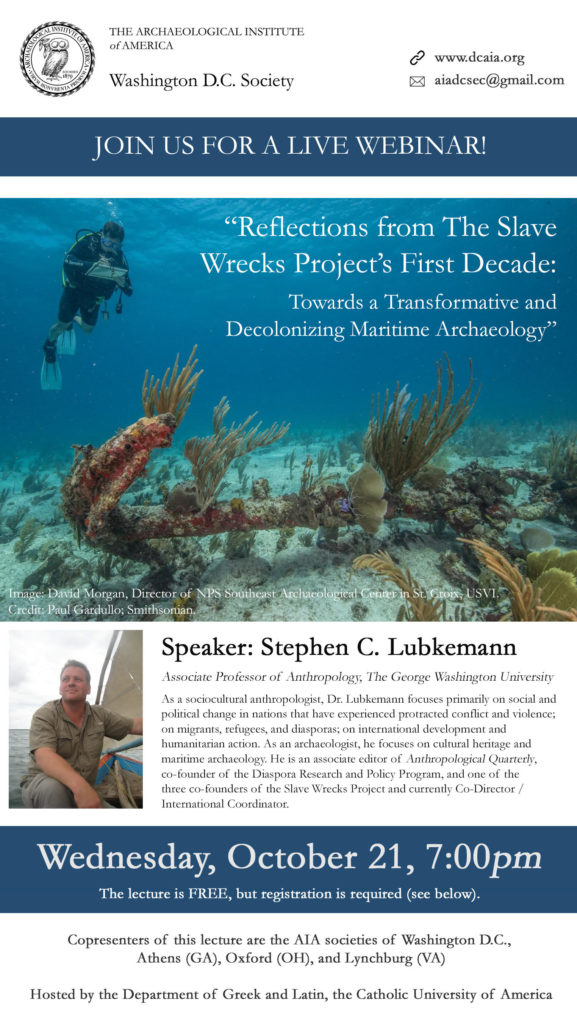May 21, 2021
The pandemic has impacted all of our Societies since it started in March of 2020. Despite the challenges associated with it, the Washington, D.C. Society has persevered with its programming and even launched new initiatives. One such initiative had to do with the switch to virtual lectures that the Societies made this season. With its lectures taking place virtually, the Washington, D.C. Society offered to partner with three smaller Societies (Athens, Oxford, and Lynchburg) to co-present their lectures. This kind of shared programming that encourages archaeological enthusiasts to join together as a community is precisely what the AIA strives to promote. In addition to sharing their lectures, the Washington, D.C. Society also created a Diversity Committee that hosted other events, including a listening webinar.
Elise Friedland, AIA Liaison for the Washington, D.C. Society and Associate Professor of Classics and Art History at The George Washington University, tells us more about the Society’s programming over the past year.
“Because our Board has faculty members from The University of Maryland, The George Washington University, Howard University, and The Catholic University of America (whose Provost graciously agreed to underwrite the cost of producing a Zoom webinar), the Washington, D.C. Society worked with AIA’s national office to identify three smaller Societies (Athens, GA; Oxford, OH; and Lynchburg, VA) that were eager to partner and join our lecture programming. Our four featured programs were diverse, covering the Roman reception of Egypt, Mayan ball courts, underwater archaeology of southern African slave ship wrecks, and the osteology of Pompeii. We had an average of 185 attendees, who enjoyed viewing world-class lecturers from their living rooms, and, contrary to our assumption that Classical lectures tend to draw the largest audiences, Zoom allowed us to see the statistics, which showed that the varied programming drew equal numbers of people. Another initiative this year, in response to the Black Lives Matter movement, was the establishment of a Diversity Committee, which in the fall organized a listening webinar and in the spring presented a lecture on the archaeology of North Africa.”
We applaud the Washington, D.C. Society for persevering, despite the circumstances, to continue to provide excellent programming that not only benefited their Society, but other AIA Societies as well!

Notifications